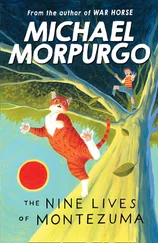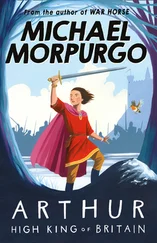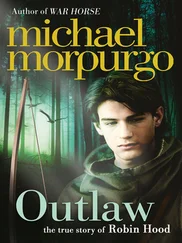The big guns bring me to my senses. We crawl out of our tent into the night. The sky is lit up all along the horizon. Whoever is underneath all that, friend or foe, is taking a terrible pounding. “That’s Ypres,” says the captain beside me in the darkness.
“Poor beggars,” says someone else. “Glad we’re not in Wipers tonight.”
We go back to our tent, huddle under our blankets and thank God it’s not us, but every one of us knows our time must come, and soon.
The next evening we go up into the line. There are no big guns tonight, but rifle fire and machine-gun fire crackle and rattle ahead of us, and flares go up, intermittently lighting the darkness. We know we are close now. It seems as if the road is taking us down into the earth itself, until it is a road no more but rather a tunnel without a roof, a communications trench. We have to be silent now. Not a whisper, not a word. If the German machine gunners or mortars spot us, and there are places they can, then we’re done for. So we stifle our curses as we slither and slide in the mud, holding on to one another to stop ourselves falling. A line of soldiers passes us coming the other way, dark-eyed men, sullen and weary. No need for questions. No need for answers. The haunted, hunted look in their eyes tells it all.
We find our dugout at last, every one of us yearning only for sleep now. It has been a long, cold march. A mug of hot sweet tea and to lie down, it’s all I want. But with Charlie, I’m posted to sentry duty. For the first time I look out through the wire over no-man’s-land and towards the enemy trenches, less than two hundred yards from our front line, they tell us, but we can’t see them, only the wire. The night is still now. A machine gun stutters and instantly I duck down. I needn’t have bothered. It’s one of ours. I’m overwhelmed by fear, numbed by it, and for the moment that fear banishes the wretched discomfort of my wet feet and frozen hands. I feel Charlie there beside me. “Fine night for poaching, Tommo,” he whispers. I can see his smile in the dark and my fear is gone at once.
It’s just as the captain said it would be, quiet. Every day I wait for the Germans to shell us, and they don’t. It seems they’re too busy shelling Wipers further up the line to bother about us, and I can’t say I’m sorry. I even begin to hope that they might have run out of shells. Every time I look through the periscope I expect to see the grey hordes coming at us across no-man’s-land, but no one comes. I am almost disappointed. We hear occasional sniper fire, so there is no smoking in the trenches at night, “unless you want your head shot off,” the captain says. Our artillery lobs a shell or two over into their trenches once in a while, and they do the same. Each one, theirs or ours — and ours sometimes drop short — comes as a surprise and terrifies me at first, terrifies all of us, but in time we become used to it and pay less attention.
Our trench and our dugouts have been left in a mess by the previous occupants, a company of Jocks from the Seaforths, so when we’re not on stand-to at dawn, brewing up or sleeping, we’re set to clearing up their mess. Captain Wilkes — or “Wilkie” as we call him now — is meticulous about tidiness and cleanliness, “because of the rats,” he says. We find out soon enough he’s right again. I am the first to find them. I am detailed to begin shoring up a dilapidated trench wall. I plunge my shovel in and open up an entire nest of them. They come pouring out, skittering away over my boots. I recoil in horror for a moment and then set about stamping them to death in the mud. I don’t kill a single one, and we see them everywhere after that. Fortunately we have Little Les, our own professional rat-catcher, who is now called upon whenever a rat is spotted, whatever the time, day or night, he doesn’t mind. He jokes that it makes him feel at home. He knows the ways of rats, and kills with a will each time, tossing their corpses up into no-man’s-land with a flourish of triumph. After a while the rats seem to know they have met their match in Little Les and leave us be.
But our other daily curse, lice, we all have to deal with ourselves. Each of us has to burn off his own with a lighted cigarette end. They inhabit us wherever they can, the folds of our skin, the creases of our clothes. We long for a bath to drown the lot of them, but above all we long to be warm again and dry.
Our greatest scourge is neither rats nor fleas but the unending drenching rain, which runs like a stream along the bottom of our trench, turning it into nothing but a mud-filled ditch, a stinking gooey mud that seems to want to hold us and then suck us down and drown us. I have not had dry feet since I got here. I go to sleep wet. I wake up wet, and the cold soaks through my sodden clothes and into my aching bones. Only sleep brings any real relief, sleep and food. God, how we long for both. Wilkie moves among us at dawn on the firestep, a word here, a smile there. He keeps us going, keeps us up to the mark. If he has fear he never shows it, and if that is courage then we’re beginning to catch it.
But we couldn’t do without Charlie either. It’s Charlie who keeps us together, breaks up our squabbles (which are many and frequent now that we are so closely confined together) and jollies each of us along when we get downhearted. He’s become like a big brother to everyone. After Sergeant Hanley and the field punishment, and the way Charlie managed to smile through it all, there isn’t a man in the company who doesn’t look up to him. Being his real brother I could feel I live in his shadow, but I never have and I do not now. I live in his glow.
We have a few more miserable days in the line, all of us longing for the comforts of rest camp. But when we get there they keep us endlessly busy. We clean our kit, march up and down, turn out for inspections again and again, do our gas mask drill again, and then there are always more ditches and drains to dig to take away the incessant rain. But we do have letters from home, from Molly and Mother, and they have knitted woollen scarves and gloves and socks for us both. We have communal baths in great steaming vats in a barn down the road and, best of all, eggs and chips and beer at the estaminet in Pop. The beautiful girl with the doe eyes is there, but she does not always notice me, and when she doesn’t I drink even more, to drown my sorrows.
The first snow of winter sees us back in the trenches. It freezes as it falls, hardening the mud — and that certainly is a blessing. Providing there is no wind we are no colder than we were before and can at least keep our feet dry. The guns have stayed relatively silent in our sector and we have had few casualties so far: one wounded by a sniper, two in hospital with pneumonia, and one with chronic trench foot — which affects us all. From what we hear and read we are in just about the luckiest sector we could be.
Word has come down from Headquarters, Wilkie says, that we must send out patrols to find out what regiments have come into the line opposite us and in what strength — though why we have to do that we do not know. There are spotter planes doing that almost every day. So most nights now, four or five of us are picked, and a patrol goes out into no-man’s-land to find out what they can. More often than not they find out nothing. No one likes going, of course, but nobody’s been hurt so far, and you get a double rum ration before you go and everyone wants that.
My turn soon comes up as it was bound to. I’m not particularly worried. Charlie’s going with me, and Nipper Martin, Little Les and Pete — “the whole skittle team”, Charlie calls us. Wilkie’s heading the patrol and we’re glad of that. He tells us we have to achieve what the other patrols have not. We have to bring back one prisoner for questioning. They give us each a double rum ration, and I’m warmed instantly to the roots of my hair, to the toes of my feet.
Читать дальше












